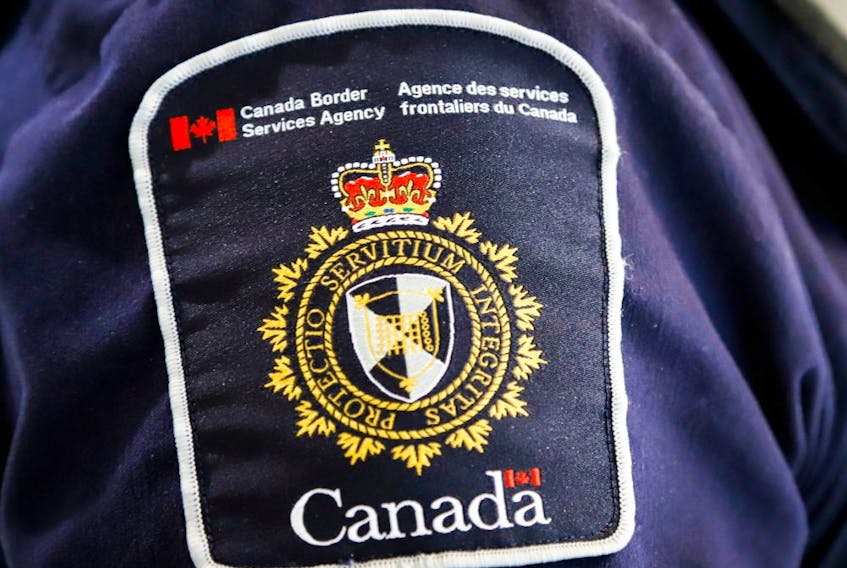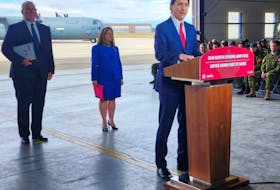High noon may have chimed late last month on the unlimited powers of Canadian border agents to search electronic devices. And we may have a couple of truly horrible people to thank for it.
Anyone who crosses our land border knows that, under the law, an international traveller is susceptible to pretty much arbitrarily high levels of electronic scrutiny. It is there in the text of the Customs Act, Section 99(1):
“An officer may (a) at any time up to the time of release, examine any goods that have been imported and open or cause to be opened any package or container of imported goods and take samples of imported goods in reasonable amounts.” In Section 2 of the act, “goods” is defined as including “conveyances, animals and any document in any form.”
Put this language (any document; any form) in the hands of the Canadian Border Services Agency (CBSA), and it becomes a superpower. They can ask you to switch on your laptop or punch your password into your phone for any reason, or for no reason — after all, aren’t these just conveyances for documents? You know, like a box of books. Never can tell what some creep or subversive might be smuggling into the country.
(Although border agents actually need probable cause to open any letter mail you might be carrying; it’s only our laptops, phones, thumb drives and other electronic paraphernalia that they have had an open invitation to ransack.)
The law has evolved to establish the principle that, as a B.C. Court of Appeal judgment noted in 2012, “Border crossings are not charter-free zones.” Canadians seeking to re-enter the country still have a reduced overall expectation of privacy; the general purpose of customs law is recognized as valid. But we also now recognize that questioning of citizens re-entering the country may, at some point, cross over into a criminal investigation accompanied by detention.
The charter thus enters the picture, but until now nobody had successfully challenged the antiquated language that treats an electronic device containing the essence of one’s identity, finances and biography in such a preposterous way.
The rule in the statute is pre-internet. From our 2020 point of view it’s pre-everything. Almost no one would ever have voted to accept the treatment we get from CBSA when it comes to laptops and phones, and if we were writing a customs law from scratch today, only a moron would have written it that way.
In fact, the CBSA kind of understands this. In October’s earth-shaking Canfield ruling by the Alberta Court of Appeal, which is the subject of this column, the court points out that the CBSA does have self-imposed “guidelines” for electronic searches.
An agency bulletin from 2012 advises agents that, “There is no greater expectation of privacy for the search of a digital device than for that of a pocket, purse or wallet search,” but urges that, “These searches will not be conducted as a matter of routine unless indicators are present that evidence may be found.”
Border cops are told to turn off exterior wireless data connections when peeping at your device, and they are told to ask only for the device’s main login credentials (on pain of device seizure), and not for other passwords.
Needless to say, the CBSA does not want these guidelines replaced by some kind of explicit legal threshold for reasonableness in conducting a search of electronics, and one of the agency’s executives told the court this. It would mean, the fellow testified by affidavit, that “goods brought into Canada within electronic devices are subject to a higher inspection threshold than goods stored in a more traditional manner.”
This is, needless to say, not anyone’s ordinary contemporary definition of the word “goods,” unless it is convenient for them use the word that way. To you and I, “goods” practically means “stuff that can’t be reduced to a sequence of ones and zeros.”
The Alberta Court of Appeal was faced with two cases, conjoined for the purpose of constitutional review, of men who tried to bring child pornography through airports. One, the eponymous Sheldon Canfield, set off a border agent’s alarm bells by talking about what a great time he’d had with the gals down in Cuba (and Cuba tourism was, let us note, deemed suspicious in itself).
The agent asked Canfield if he had child porn on his phone and got the fatal answer, “I’m not sure.” A second appellant, Daniel Townsend, behaved suspiciously and was forced to open a password-protected laptop.
Nobody will be too upset about the convictions of these guys, and the convictions were in fact upheld by the Court of Appeal, which declined to order a new trial with the evidence from customs excluded. This involves a “Grant analysis,” which basically incorporates the question, “Can we bear to let these lowlifes walk even though the evidence against them was improperly obtained?”
But the court backed a truck repeatedly over the constitutionality of Section 99(1), declaring it invalid and giving Parliament a year to fix it. If you’re keeping score, the searches of Canfield and Townsend not only violated Section 8 of the charter (the search rules), but Sec. 10 (right to counsel when detained) and Sec. 7 (compelled self-incrimination). Further developments, and maybe further litigation, will no doubt follow.
National Post
Twitter.com/colbycosh
Copyright Postmedia Network Inc., 2020









